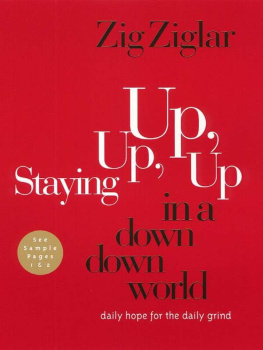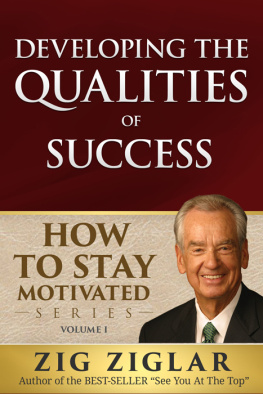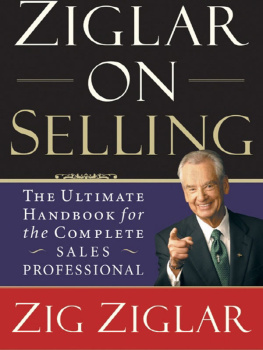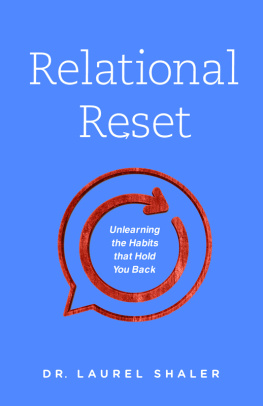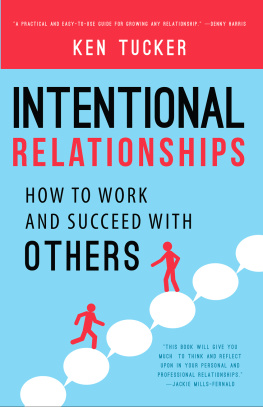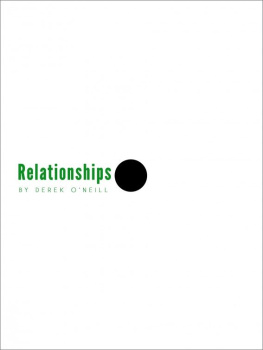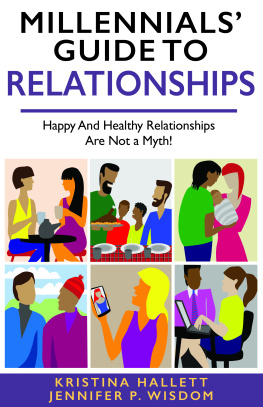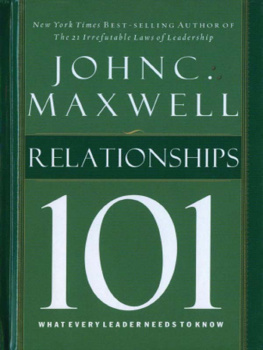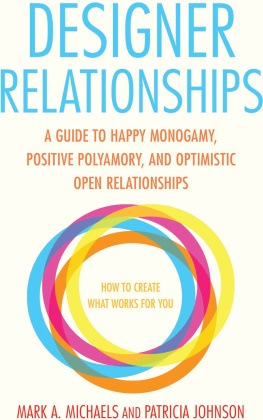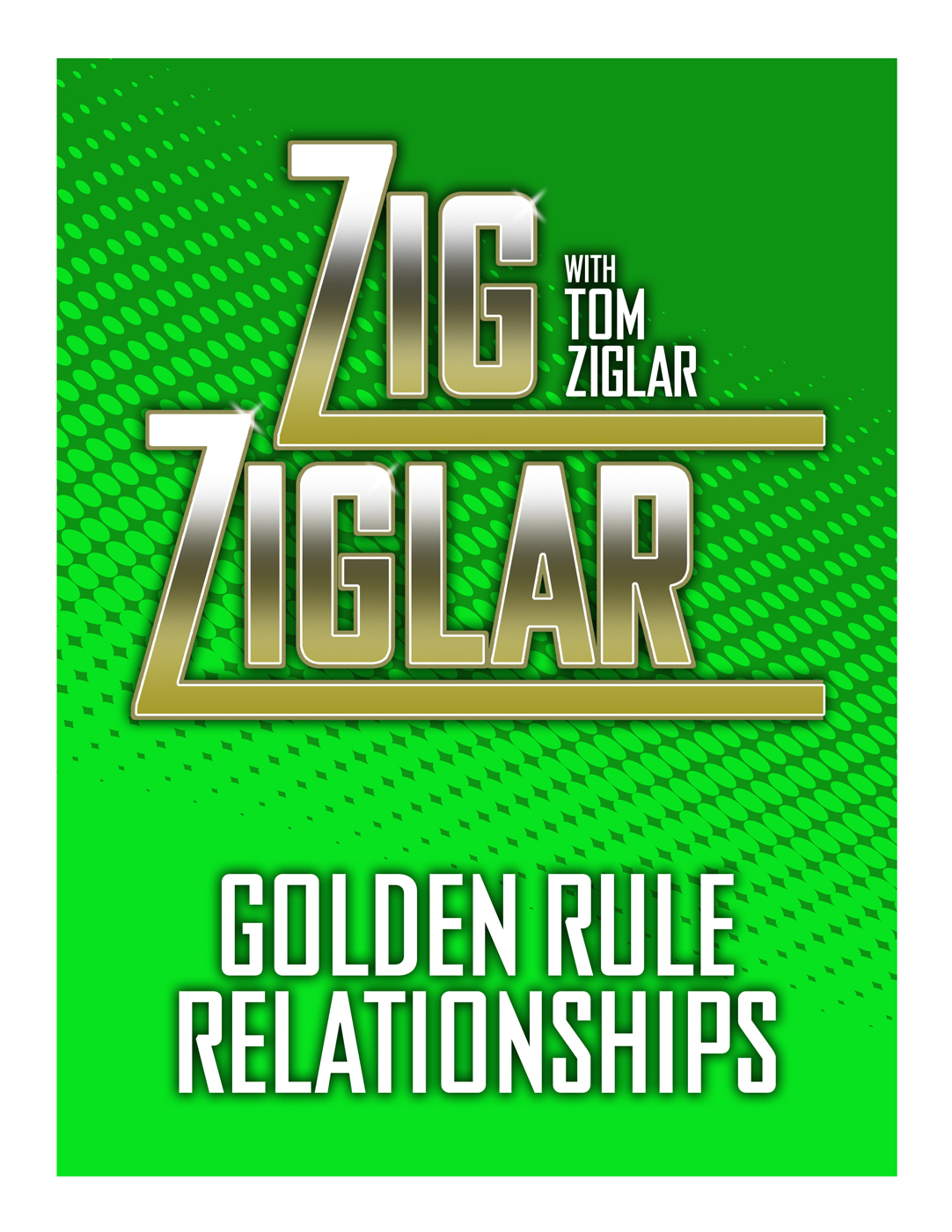Zig Ziglar was the top salesperson in several organizations who became a bestselling author, motivational speaker and trainer. The following e-book is taken from a popular and highly-attended seminar he presented with his son Tom Ziglar. We hope you enjoy this original lecture containing essential information that can be applied to every facet of life and business.
Welcome to Zig Ziglars G OLDEN R ULE R ELATIONSHIPS . I know youre going to enjoy this e-book. I am the CEO of Ziglar, Inc., and Zig Ziglar is my father. Id like to tell you about Golden Rule Relationships in this story that I watched play out literally hundreds of times in my life.
You see, I was the last born in our family. Im the baby by almost ten years, so I was at home by myself from the time I was about eight years old. My sisters had moved out, so it was me, Mom and Dad. Mom had already proven that she knew how to cook so Mom would say, Hey, its time to go to dinner, and we would all get in the car and go to Lubys Cafeteria. Now if youve never had the privilege of eating at a Southern-style cafeteria, next time youre in the South or in the Dallas area you need to check out the cafeteria. Heres how it works.
You get in line and go down this long buffet line. Its incredible, all these different foods. There are servers on the other side and they serve you food, so you get your salad, you get your meat and your entre and your vegetables and your desserts and your breads. And there are about 100 choices to choose from and youve got to narrow that down to the four or five or however many that you want.
It was always an amazing show because we went there two or three times a week, and Mom and Dad knew everybody at Lubys. So Mom would walk in -- and Dad called her the happy hugger. She hugged everybody -- so shes hugging the cashier and shes hugging the lady who was driving the cart of drinks they used to roll around and serve you at your tables. Then we would get in line.
When I was younger, I never noticed this, but sometime around age 12 or 13, I realized that Dad was different. You see, Mom would go first down the line, I would go second, and then Dad would go third and wed each have our own tray. I noticed that Dad would give a motivational talk to every server in line. No matter who they were, no matter how long they worked there, hed asked them how they were doing and hed give them a word of encouragement. Hed ask them about their family. I want you to know that the people who worked in this line came from all backgrounds, many of them immigrants to our country, most of them trying to get an entry-level job. Life had been hard on many of them; this wasnt the first place you would think to go and work.
And I noticed the smiles on their faces. Dad would give them this motivational message, and as he was talking to them they would start piling the food on his plate. Every time we got through the line, I noticed that Dad would have two or three times as much food on his plate as we would. You see, he was practicing his philosophy: you can have everything in life you want if you will just help enough other people get what they want.
When he walked into that place, everybody smiled. Everybody wanted to be a part of his world. He was practicing Golden Rule Relationships. So, you see, I learned about life in a cafeteria line. The way you treat people, the way you respect them, the way you find out whats personal and unique about them, about their kids, about their dreams, about their hopes, I saw Dad was doing all of that in a five-minute trip down the cafeteria line. Imagine what you could accomplish if you employed that same attitude and those same actions with the people who matter most to you -- your friends, your family, those you work with on a daily basis. Thats what this program is about.
Right now, you have in your control the ability to create Golden Rule Relationships. Youre going to learn so many different ideas and ways to help create and enhance these and, after reading this, whether you do or not is really your choice. I want you to know that if you make the right choice, youll never regret it.
And now its my pleasure to introduce my father, Zig Ziglar.
Im going to talk tonight about relationships. Let me tell you why Im going to talk about relationships -- and this is probably going to stun some of you because this is going to be pretty heavy in lots of areas. By and large, my research clearly indicates that if your relationships with those you love are good, almost regardless of how everything else is going, regardless of where your corporate position or network marketing is, almost regardless of where the bank account is, if youre getting along well with the people you love, life is pretty good to you.
On the other hand, if everything else in your life is going well but youre not getting along well with those you love, then things are pretty tough. So, we want to talk about those relationships.
I have a lot of privileges. One of them is I have access to some of the great minds in this country in the fields of psychology, theology and the physiological world: physical, mental and spiritual. Before I verbalize anything, record anything, or write anything of any significance, I always validate it in all three disciplines because I believe if youre on target with those three disciplines, youre going to be pretty close to being right, particularly if its right theologically.
Heres what I have found. I dont do any counseling. Im not trained for it, dont have time for it, and my natural inclination is to believe everything the last person I talked to tells me. And that really does not make for good professional counseling. But the people who do the counseling tell me this: they say that almost 100% of all the counseling they do is the direct result of relationship difficulties -- husband/wife, parent/child, teacher/student, employer/employee, brother/brother, neighbor/neighbor -- relationship difficulties.
Why are we having so many relationship difficulties? There are a couple of thoughts. Dr. Smiley Blanton, a psychiatrist, says that 80% of all the counseling he does is the direct result of parents not having taught their children manners. Now, manners are a lot more than how do you hold a knife and fork. Manners are deportment. Civility. Respect for other people. And that parent who does not teach their children how to say




